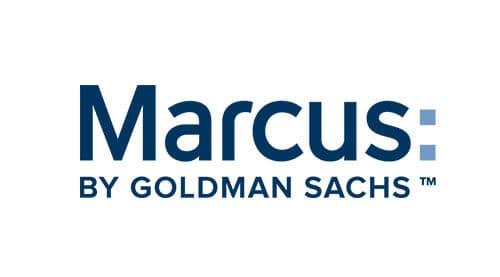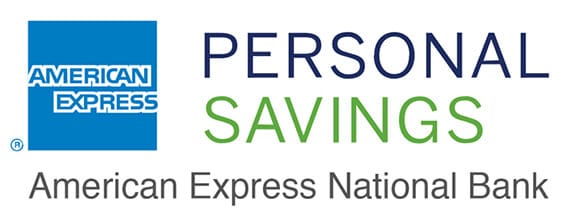Top 6 High Yield Savings Accounts Compared 2020
Traditionally one of the most common types of bank accounts has been oriented for savings, allowing individuals to keep their funds safely while receiving a return based on their balance. The main idea of a savings account is to deposit funds that won’t be needed for spent in a short-mid period of time. From a bank perspective, this type of account is pretty useful as it allows them to capitalize and obtain liqui dity that on average won’t fluctuate much and that is overall more stable than checking accounts.
dity that on average won’t fluctuate much and that is overall more stable than checking accounts.
In order to incentivize the usage of savings accounts more and more banks have started to offer high yields over the deposited fund, allowing individuals to make their money grow in the most liquid asset possible, where in case of any unplanned situation they would be able to withdraw the total balance without any penalty or problem.
-
-
One of the main drivers that have made high yield/interest accounts a possibility is that new banks have adapted to an online banking model on which there are no branches and subsequently the cost of operating their business is considerably lower. It is important to mention that traditional banks can also offer high yields but they can’t be compared to the high numbers that online banks are paying nowadays.
Do not save what is left after spending; instead, spend what is left after saving. Warren BuffettWhile banking itself has not really changed much between both types of banks, certain individuals might not feel as comfortable dealing with everything via an online platform and they might still need access to physical services, if this your case then you might be better off aiming for a more traditional type of bank.
What are the Pros and Cons of a Savings Account?
Savings accounts, which differ from ISA accounts, are intended to be used for depositing funds that won’t be needed in the mid-future, allowing individuals to safely guard their funds while receiving a yield for their money in return. As mentioned before it is in the keen interest of banks to capture stable liquidity from this type of account.
It is important to mention that in most cases this type of account will not even provide access to plastic cards as they are intended to be used for everyday payments. If on the other hand, you are interested in a bank account that will allow you to pay and receive funds in an active manner, then a Checkings Account might be a better option instead.
There are many reasons why an individual should consider having at least one savings account in the bank of their choice, some of the most important benefits and negatives from this type of bank account are:
ProsCons- Automatic Savings Plans: According to several studies made in the US, one of the best ways to save money without so much emotional pain is to automatize the transfers directly from your paycheck. With this method, you would get used to seeing the final number available for spending without taking into consideration the amount saved each month. If you have a savings account you should take advantage of this feature to make your account grow. At the end of the day, you will be paying yourself first and will create a habit at the same time.
- Joint accounts: Savings accounts allow individuals to maintain joint accounts with their partners, allowing both individuals to get access to the funds and to save under one account.
- Easy access to your money: In an effort to make access to funds easier and more straightforward, many banks are now offering powerful platforms with ATM Cards, mobile apps and online banking services that allow individuals to get as close to their money as possible.
- Earn interest on your savings: In an effort to incentivize individuals to save and to open savings accounts most financial institutions offer high yield/interests in exchange for keeping the funds in the account. It is important to mention that many accounts also offer compound interest, this means that as interest is paid and the account grows future benefit will also be higher. Please be aware that the rates offered will defer between banks and in some cases, there might be restrictions like a due period of time on which the funds cannot be moved in order to obtain the maximum yield possible.
- Savings accounts are free to open: If you are an individual that is concerned about costs of owning a savings account or any other financial service offered by a bank, you would then be delight by knowing that most banks do not charge any maintenance fee. It is important to mention that in certain cases individuals will have to follow and respect certain guidelines in order to enjoy for a fully free ride (sustain a minimum balance for example).
- No lock-in period: With a savings account you will control the funds of the bank at all times, this also allows individuals to decide when to take out their money if they want to. Unlike with CDs and time deposits, an individual can easily withdraw 100% of the funds without having to deal with restrictions or penalties
- Protect your checking account from overdraft fees: If you own a checkings account then you know that one of the most expensive fees that your account may incur are due to overdrafts, savings accounts allow individuals to connect both accounts and to use the funds from the savings account to cover for possible overdrafts. This will ensure that no penalty or fees will be charged.
- Your money is safe: Banks are known for their well-protected vaults, and if your financial institution goes bust, the FDIC will guarantee your savings account balance up to the value of $250,000.
- Rates are not fixed: While this might depend on your bank, individuals should be aware that most financial institutions do not offer fixed interest rates for their savings account and this same point also apply to some high yield accounts as well. It is also important to keep in mind that in most cases banks offering high yield rates will usually stay close in line to the rates and movements from the FED.
- The temptation to spend: Savings accounts are on call products which means that as the owner of the account can have access to the funds as per their discretion and needs. This makes savings accounts a great choice for individuals looking to get a higher possible return without compromising the liquidity of their funds. If you do not have any intentions of spending the money in the short future, you might want to consider aiming for a time CD instead of as they offer higher returns at a reasonably high liquidity level.
- Withdrawal limit: Even though access to the funds is on call at all moments, it is important to keep in mind that due to regulations access to savings accounts are rest six penalty-free withdrawals. If for some reason you have maxed this number within 30 days, you can technically continue withdrawing but a penalty will be charged over the withdrawn funds.
- Inflation: One common misconception when it comes to investments or simply personal finances is that individuals believe that saving is all they need, but in reality saving without a plan or a competitive model will only result in capital degradation. Think about this way, with inflation numbers in the US of 1.9% in 2018, it means that in order for your money to at least sustain its value you need to be earning interests of at least 2% just to cover inflation.
While it psychologically helps to know that you have access to funds available in case of a black swan event in your life, you should consider aiming for other types of very liquid investment vehicles that could pay a higher yield at a very similar beta of risk.
Inflation is when you pay fifteen dollars for the ten dollar haircut you used to get for five dollars when you had your hair Sam EwingBest High Yield/Interest Savings Accounts of 2020
1. Marcus by Goldman Sachs
Unless you have worked for Goldman Sachs then chances are you have no idea about the story of this wall street titan. The name Goldman Sachs is composed by the two last names of their founders Marcus Goldman and Samuel Sachs.
Marcus by Goldman Sachs was born as an online commercial bank and a subsidiary of the global brand of GS. Ever since their inception in 2016 the firm has grown considerably fast as more and more individuals in the US became interested in the perks of owning an account with an online Bank.
It is important to mention that it is a growing firm and their range of services and products is expanding constantly, even though they are fairly new in the street, the support and backing of one of the most legendary firms of WallStreet make them a hard contender and a pretty attractive option.
If all you are looking is a liquid option to access CDs and Savings accounts then you should consider Marcos as part of your account repertoire.
Other Services offered by the bank are:
- Checking Accounts
- High Yield CDs
- No Penalty CDs
- Mortgages
- Personal Loans
- Debt Consolidation Loans
- Home Improvement Loans
Pros and Cons of the Bank
- Minimum Requirements: No minimum deposit or balance
- Recommended for: Individuals comfortable with dealing with a fully online banking service
- APY (Annual Percentage Yield): 2.25%
Pros
- 2.25% annual percentage yield with a $0 minimum balance requirement
- No minimum deposit to open an account
- No transaction fees
- Online banking suite
Cons
- No debit or ATM card for cash withdrawals
- No checking or money market account for easy access to your cash
- Limited access to mobile banking: No mobile check deposit, and (currently) no dedicated Marcus app
2. Citizens Access Bank
Access is the new subdivision of Citizens Bank and it only focuses on fully online banking services, specifically retail and consumer banking.
For an online bank to e consider as trustworthy it might be backed by a stable firm and should also have a relatively powerful platform that will be able to perform as good or even better than a branch. With more and more Americans preferring to stay in their houses instead of reaching a bank, this type of banking system is the way to go.
One of the main negatives about this firm is that they still do not offer access to checkings accounts, it is important to be aware that in most circumstances individuals are looking access to both in order to save money but also to access payment mechanisms. As per a recent article, the firm is currently working and improving their platform in order to offer checking accounts by the third quarter of 2020.
Other Services offered by the bank are:
- High Yield CDs
- CD Ladders
- Savings Accounts
- Checkings Accounts starting 3Q ’19
Pros and Cons of the Bank
- Minimum Requirements: $5,000
- APY (Annual Percentage Yield): 2.35 High Yield
Pros
- Highly competitive savings account rate and CD rates
- No fees
Cons
- Relatively high minimum opening deposits of $5,000
- No checking account
- No mobile app, but offers a mobile-optimized website with a check deposit feature
3. HSBC
The Hongkong and Shanghai Banking Corporation or HSBC is one of the most important international banks in the world. Even though the firm has asian origins, their parent company is actually british. Please note that this firm offers an incredibly broad range of services in the US, making it one of the overall best options for individuals looking to consolidate their banking services and especially those with international necesities and business needs.
Continuing with the market trend, HSBC has invested over the past couple of years to improve their online banking services to a point where some of their products are offered completely online and little to noninteraction necessary.
If you are looking for an online savings account with a well-known brand then you should consider HSBC as a great option.
Other Services offered by the bank are:
- Retirement Plans
- Brokerage
- Insurance
- Borrowing (All types of loans)
- Checkings Accounts
- CDs
- Credit Cards
- Corporate and Investment Banking
Pros and Cons of the Bank
- Minimum Requirements: $1
- APY (Annual Percentage Yield): 2.30%
Pros
- Easy to avoid (if steep) fee on basic checking.
- Great rate on online savings.
- Low opening deposit on basic checking and savings.
Cons
- Low rates on most savings products.
- A relatively small number of branches and ATMs.
- Hard to find basic information on the website.
4. American Express National Bank
If you think about AMEX the first thing that might pop in your head would be credit cards and especially metallic ones. What is not so known about the company is that they have ventured with services outside payments and credit cards, offering nowadays access to savings accounts and CDs.
Due to their cheap business model and their completely online platform the firm has been able to offer its customers with excellent rates and yields for their capital, with certain products exceeding up to 3%.
It is important to mention that the company is overseen by the FDIC and that the funds are insured for up to $250,000 per individual (just like with any other major bank). Not only you will be dealing with a pretty stable bank, but also with a major power with decades of experience dealing with online services, delivering their products to some of the most demanding individuals in the world.
Other Services offered by the bank are:
- Credit Cards (Top Tier cards available in the market)
- CDs
- Savings Accounts
Pros and Cons of the Bank
- Minimum Requirements: No minimum deposit or balance
- APY (Annual Percentage Yield): 2.10%
Pros
- Excellent interest rates
- No monthly fees or minimum balance requirements
Cons
- No checking account option
- Checks need to be mailed in to be deposited
- No mobile apps, chat or Twitter support
5. Barclays
This bank does not offer many products to retail consumers in the US, but the firm has built its own name and reputation for their savings accounts and CDs, where they offer top liquidity to individuals.
With more than 48 million costumers worldwide, the London Based firm has developed a strong platform that allows individuals to managed their accounts and credit deposits in a timely and secure manner.
Individuals should be aware that the package of savings products offered by Barclays are not intended for hands-on individuals, alternatively, they were designed to target individuals who do not need active management on their savings and instead will simply hold their funds for long periods of time.
If you are interested in opening an account with capital that won’t be needed in the mid/long term basis, then you should consider Barclays.
Other Services offered by the bank are:
- Savings Accounts
- Online Banking
- CDs
Pros and Cons of the Bank
- Minimum Requirements: $1 minimum balance
- APY (Annual Percentage Yield): 2.20%
Pros
- 2.20% APY on savings, among the best you’ll find
- $5 nonsufficient funds fee; many banks charge $30 or more for similar fees
Cons
- No ATM network and only 5 branch locations for U.S. customers
- No checking account
- No cash deposits or withdrawals from ATMs
6.Discover
One of the reasons why many consumer banks have to charge expensive fees is due to the cost associated with maintaining such a broad operation of branches around the country. In an effort to reduce costs and to offer better and cheaper services online banks like Discover have become key players in the Banking System of the country.
One of the key differentiators between discovering and their competitors is that the firms operate their own payment network which allows them to reduce the cost that is usually charged by Visa or American Express. Note that plastic cards from this firm are usually received in most commerce in the US and the world, making the firm the third largest credit card brand in the US when measured by the cards in force (50 million cardholders).
Over their 34 years of existence, the company has perfected their business model, expanding its range of services and products and becoming a key player and a strong contender for anyone looking to open a Checkings Account.
Other Services offered by the bank are:
- Checking Accounts
- Saving Accounts
- Credit Cards
- Personal Loans
- Student Loans
- Home Equity Loans
- IRAs
Pros and Cons of the Bank
- Minimum Requirements: No minimum deposit
- APY (Annual Percentage Yield): 2.10%
Pros
- $150 and $200 bonus.
- 1% cash-back rewards checking account.
- Competitive savings rates.
- No monthly maintenance fees.
- Large ATM network.
Cons
- Only one physical branch location in the US
- International use of plastic cards can be difficult as not many places accept Discover
Conclusion
It is important for anyone interested in their personal finances to understand the benefits that a savings account can bring to their life. Many individuals commit the mistake of holding long term capital positions in checkings accounts instead of opening a dedicated vehicle that would allow them to benefit from interest on their funds.
As mentioned above, individuals should always aim to have their cash in accounts or vehicles that will at least help them overcome inflation, this will ultimately preserve capital and its buying power over time. With many important banks offering their state of the art platforms at a discount price, there are less and fewer reasons for an individual no to open a bank account.
As the economy continues to advance into a cashless environment, it is more important than ever for individuals to upgrade their finances and for them to take the right advantage of all the different products that are currently being offered for free. It is harder than ever for any person to justify not owning a bank account (checking/savings).
FAQ
Why should I open a Savings Account?
If you have disposable cash that you are not planning on utilizing in a short time, then owning a savings account is definitely a smart move. This type of account will allow you to benefit from high interests and yield over the funds, making your money grow instead of simply being parked in your checkings account, or even worse, in cash!
Is a savings account better than a checking account ?
This is a very common question and the answer is No as they both serve different porpuses. A checkings account is designed for individuals that need access to fast payments and numerous transactions. On the other hand, savings account serve a mid-long term mechanism to maintain cash while receiving interests on the deposited funds. Instead of spending time trying to figure out which one is better, go out and get both of them! Most banks nowadays are offering both types and in most cases, there is no additional charge for owning multiple accounts.
Will the money in my savings account be insured?
The FDIC offers insurance for up to $250,000 per account and per individual. Please be aware that not all the banks in the US are insured and this should be an important point to analyze and investigate before choosing a financial institution.
How is interest paid on my account?
Interests payments can differ in terms of when they are paid, most banks offer quarterly or monthly payments but it will depend on the institution. In most cases, interests are paid directly in the funds of the account which allows for compounding as time goes by.
Can I withdraw from my account whenever I want?
Technically yes, but it is important to keep in mind that due to local regulation in the US, savings accounts only offer six withdrawals and transactions every 30 days. If in any given month to exceed the max number of movements, it is pretty likely that you indulge in a penalty fee for any additional transaction.
Are ATM cards available?
While is not the rule for savings accounts, some banks usually offer a debit card when an account is open. As mentioned above, keep in mind that certain types of transactions will count as withdrawals and transactions and will ultimately affect the number of available movements (read the question from above #5).

David Waring
David Waring
David Waring was the founder of LearnBonds.com and has been a major contributor to the extensive library of investing news and information available on the site. Until the launch of Learnbonds.com in late 2011 there was no single site on the internet catering exclusively to the individual bond investor. This was true even though more individuals own stocks than bonds. Learn Bonds was launched to fill that gap.






